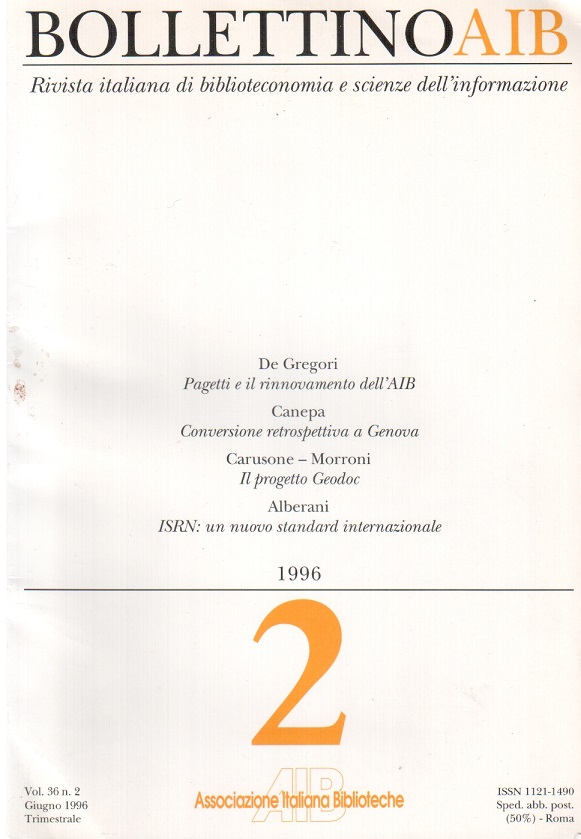Catalogue conversion: lessons from France and experiences in Genoa
Main Article Content
Abstract
A stage experience with the French company Jouve with the specific purpose of studying the methodologies adopted for retrospective conversion has permitted to assess the feasibility of catalogue conversion projects on the basis of criteria of cost and the quality of results. Jouve's skills in the information processing and electronic publishing fields has been concretely applied also in large-scale retrospective conversion operations for the Bibliothèque nationale de France and for other library institutions. Of particular interest is Jouve's continuous improvement of the conversion methodology, via the gradual introduction of innovative techniques and experimental prototypes in the production process.
The stimuli and ideas furnished by the stage have been applied in the retrospective conversion project for part of the catalogue of the Berio Public Library of Genoa, which is about to move. In addition to changing premises, the library has to manage the transition from its present arrangement of closed stacks to an open-shelf arrangement which will use the Dewey Decimal Classification.
The project included an in-depth study of the UNIMARC format and the experimentation of bibliographic data capture, with an analysis of work procedures and the measurement and evaluation of results. The experimentation involved all technical services staff and the participants of the work training site which was set up as a result of the extraordinary activities engendered by the library's upcoming move.
The opportunity to implement a site organisation project enabled us to verify the suitability of bibliographic data capture using the Italian National Bibliography (BNI) on CD-ROM as the principal source, and to resolve problems related to the revision of downloaded records and their integration into the library's computerised catalogue.
After a year of experimentation, the library's staff is now able to judge the quality of the records, to program, and subsequently revise, the processing phases, and to use a database which is the national cataloguing authority as a source.
The reference to a single bibliographical source allows the gradual establishment of collective catalogues with a significant degree of homogeneity, an advantage which is much appreciated by users.
Article Details

This work is licensed under a Creative Commons Attribution-ShareAlike 4.0 International License.
